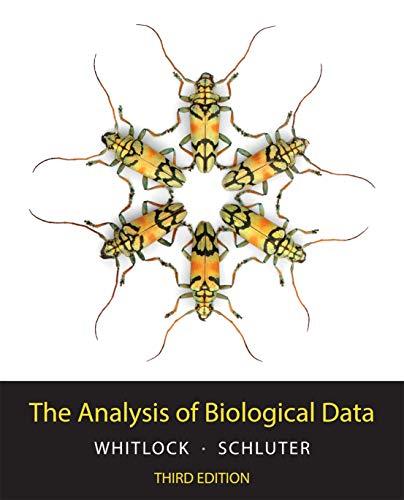Fruit flies, like almost all other living organisms, have built-in circadian rhythms that keep time even in
Question:
Fruit flies, like almost all other living organisms, have built-in circadian rhythms that keep time even in the absence of external stimuli. Several genes have been shown to be involved in internal timekeeping, including per (period) and tim (timeless). Mutations in these two genes, and in other genes, disrupt timekeeping abilities. Interestingly, these genes have also been shown to be involved in other time-related behavior, such as the frequency of wingbeats in male courtship behaviors. Individuals that carry particular mutations of per and tim have been shown to copulate for longer than individuals that have neither mutation. But do these two mutations affect copulation time in similar ways? The following table summarizes some data on the duration of copulation for flies that carry either the tim mutation or the per mutation (Beaver and Giebultowicz 2004):

a. Do these two mutations lead to different mean copulation durations? Carry out the appropriate test.
b. Do the populations carrying these mutations have different variances in copulation duration?
Step by Step Answer:

The Analysis Of Biological Data
ISBN: 9781319226237
3rd Edition
Authors: Michael C. Whitlock, Dolph Schluter





